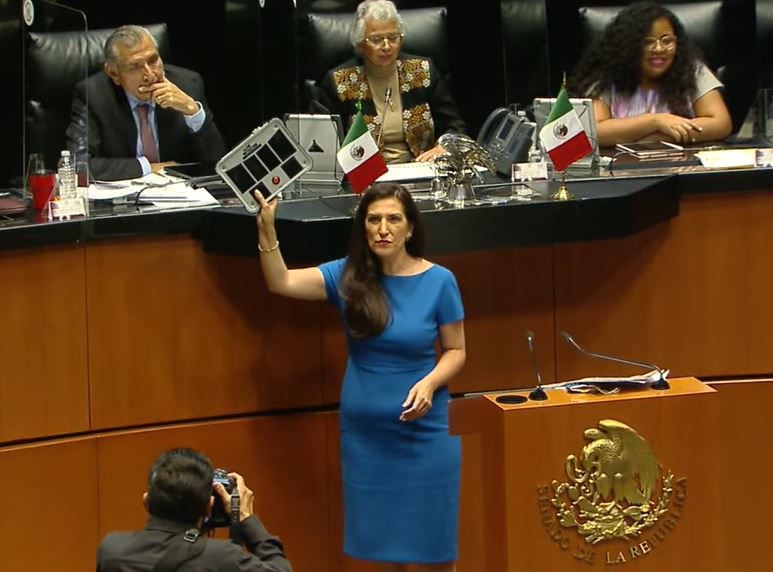Even with increasing privacy restrictions, marketers can still get the data they need to identify customers and personalize communications. This was one of the main themes of the keynote conversation which kicked off Day 1 of The MarTech Conference.
“Whether we’re talking about B2B buyers or consumers, customers need you to know who they are, whichever channel or device they’re meeting you on,” said Kim Davis, MarTech’s editorial director. “At the same time, they expect you to respect their privacy. What that means is that as the industry gradually weans itself from cookie-tracking, other ways of understanding customer behavior and the customer journey become paramount.”
Is the industry prepared for this privacy-driven environment? Changes are underway as Google now plans to phase out third-party cookies from Chrome in 2024. Last year, IAB CEO David Cohen called the deprecation of third-party identifiers “the world’s biggest slow-motion train wreck.”
Here are the approaches B2B and B2C marketers can use today as privacy becomes an ever greater priority.
Identity resolution solutions
Identity resolution solutions integrate consumer identifiers across channels and devices in a way that is accurate, scalable and privacy-compliant to create a persistent and addressable individual profile.
“It’s privacy-compliant because the user’s profile is built around an anonymized token, not a name, email address or phone number,” Davis said.
Most identity resolution platforms maintain identity graphs into which they gather data from the full range of channels and devices where the user is active. Identity resolution platforms identify users either deterministically or probabilistically.
“The result should be the ability to segment and target audiences based on interests and behavior,” said Davis. “For most marketing purposes — not all, but most — it’s more valuable to know what the customer is interested in than their name, height, weight, gender and home address. That’s true whether they’re in market for a sophisticated software solution, or just looking for a new pair of sunglasses.”
Dig deeper: What is identity resolution and how are platforms adapting to privacy changes?

Zero-party data
Zero-party data is a kind of first-party data that a user volunteers that relates to their interests, preferences or intent.
“It could be collected by something as simple as a three-question quiz,” said Davis. “Collection could be gamified.”
For instance, here’s how online temporary tattoo seller Inkbox uses a quiz to gain zero-party data from customers.
“Customers are eager to give up this information and hand it over so that they can get the help they need, get better products and services,” said Tim Parkin, President of Parkin Consulting. “Zero-party data is massive. It’s been here for a while under the radar and we need to expose it now and align our interests with the customer so that we can access this zero-party data.”
Data clean rooms
Data clean rooms (DCRs) use privacy-enhancing technology that allows data owners, including brands and publishers, to share first-party data in a privacy-compliant way. They resolve the data to a profile while keeping that profile anonymized.
This emerging technology requires a certain level of data maturity, so not all organizations can take the leap into DCRs. Those that do typically already have a CDP or DMP in place to manage customer data. Additionally, brands using a DCR might look to a consultancy to assist in the implementation, and that costs more.
Dig deeper: How data clean rooms might help keep the internet open

B2B community building
B2B marketers use communities to give like-minded individuals the platform to communicate with experts in their field. This gives buyers the incentive to volunteer information in order to stay connected.
“B2B marketers have gotten pretty smart at trying to figure out how to have people give their information so that they can voluntarily communicate with individuals and companies that they feel they want to do business with,” said Cyndi Greenglass, President of Livingston Strategies, a B2B marketing consultancy. “Some of the ways that companies have gotten past the [privacy] challenge is by creating their own portals, their own communities and environments where individuals are offering up information so that they can stay connected despite what’s happening in this environment.”
Marketers must serve high-quality content into their portal for the community to thrive. Businesspeople bring high standards to their B2B interactions because they are used to best-of-breed buying experiences when they act as consumers making personal buying decisions.
“Community is more important than it’s ever been,” Greenglass said. “We’ve seen that consumers — whether they are B2B purchasers or individuals — we bring our human behavior into the workplace when we do business every day.”
“I’m a strong believer in customer proximity, that whoever is closest to the customer wins,” said Parkin. “If you’re not talking to your customers, you’re not learning about who they are and what they want, how they think and how they act. Community allows you to do that. It’s your experiment lab where you can see people interact with each other and you can get face-to-face with customers.”
Get MarTech! Daily. Free. In your inbox.
Note: This article have been indexed to our site. We do not claim legitimacy, ownership or copyright of any of the content above. To see the article at original source Click Here













